Your Future of News
- Published
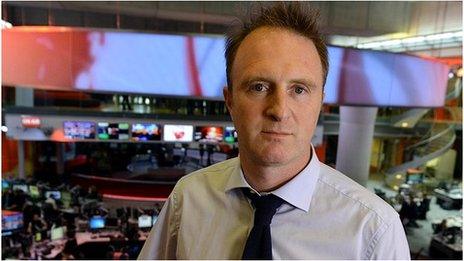
BBC's Director of News James Harding
The BBC's director of news and current affairs, James Harding, has debated with leading editors, journalists and academics on how journalism might change over the next decade. You joined the discussion.
The internet is changing the way you get your news and how you interact with it. So how might journalists deal with the wealth of information and distinguish the good from the bad?
You have been giving us your reaction to the ideas.
Your tweets
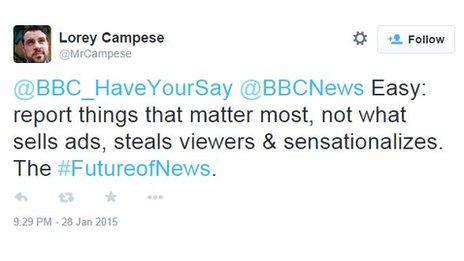
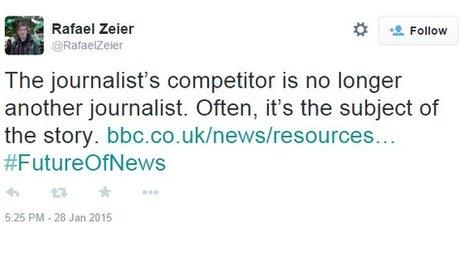
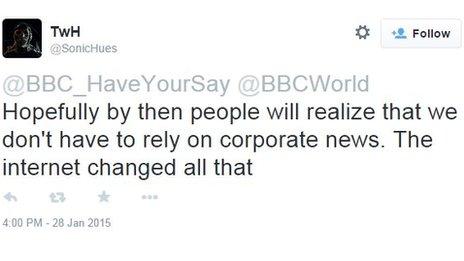
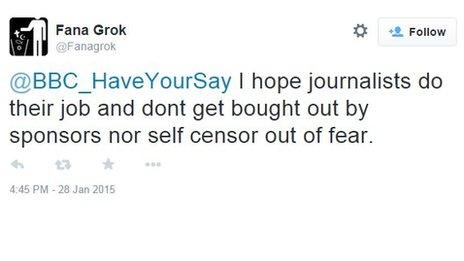
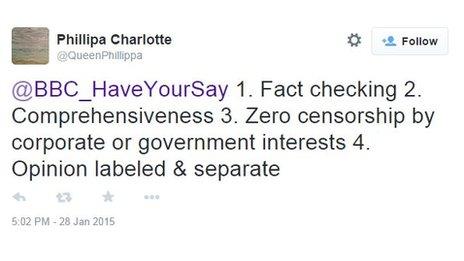
Your emails
Lucy Woods: Journalists to be as diverse as the people they write for, with more interactive, multimedia, data married with quality storytelling, news creation.
Martin Letts, Southampton: The BBC must of course retain and improve its news coverage of local issues. In our Solent region, we get excellent news coverage, and two-way interaction between broadcasters and listeners on live radio and TV, which is democracy in action. Very often local councillors and quango CEOs are held to public account. Often to their detriment, if they have overstepped their powers. This works, I can assure you. Also, the BBC World Service is a trusted source when others are trying to push propaganda or/and advertising. The UK still has a place in the world, which is for stability and peace, and, yes, promulgating decent standards throughout the world.
Ian Smith, Bradford: Let's have factual, unbiased news without the personal interest shown by editors and presenters. Apolitical of course. It would also be nice for it not to be misleading or misinterpreted. And for news to be properly and fully investigated before being broadcast. Oh! And I nearly forgot, please don't rely on people having the latest technology - smartphones, as it currently is.
BBC News website reader: Journalists will have to realise that people now have access to the news from a variety of sources and so can compare stories, thus, many of the "old school" journos will have to change the way they report items.
Andrew Mantle in South Croydon: News should not be a show. It should be a straightforward passing-on to viewers of what is happening in this country and the world beyond, with the maximum of clarity for the chosen topics and the minimum of distractions. Of course there must be use of audio-visual techniques, but they should be there to add to the impact or explanation of the news topics and not be a sort of showbiz end in themselves.
What will news look like in 10 years? As a news consumer what do you want to see happen to the news industry? Please email your views to haveyoursay@bbc.co.uk, external.
More in depth coverage on the Future of News.